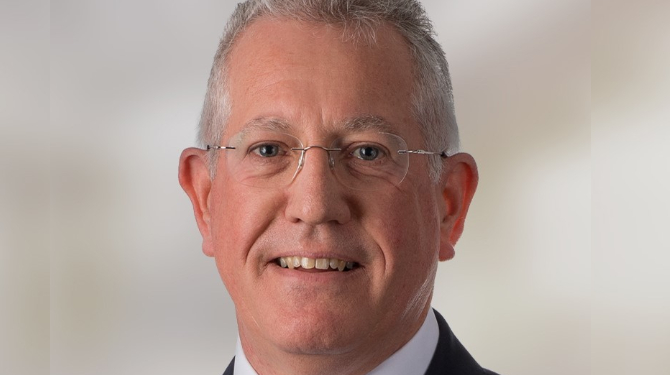Sign up for our free daily newsletter
YOUR PRIVACY - PLEASE READ CAREFULLY DATA PROTECTION STATEMENT
Below we explain how we will communicate with you. We set out how we use your data in our Privacy Policy.
Global City Media, and its associated brands will use the lawful basis of legitimate interests to use
the
contact details you have supplied to contact you regarding our publications, events, training,
reader
research, and other relevant information. We will always give you the option to opt out of our
marketing.
By clicking submit, you confirm that you understand and accept the Terms & Conditions and Privacy Policy
A growing number of law firms are taking steps to define their purpose so they can demonstrate to clients and employees what their brand stands for, according to a panel of experts who spoke at the Law Firm Marketing Summit.
That trend has accelerated because of the shared trauma of the Covid-19 pandemic, which created a renewed sense of community and a desire for organisations to deliver more than just profits, said Lisa Ardley-Price, managing legal counsel for transaction banking at NatWest Group.
“We have all come out the other side of it and really started to question: ‘What are we doing here?’” she told the summit, which took place in October. “Is it just about making money? Or is it about something more – is it about giving back more to society and to one another?”
NatWest Group CEO Alison Rose has been championing the bank as a purpose-driven organisation since being appointed in 2019 and Ardley-Price expects the same from the panel firms that she works with. That means she doesn’t just want to know about their subject matter expertise, she also wants to know what those firms are doing to support the wellbeing of their lawyers.
“I’ve come from private practice myself and I know what that can be like with people reaching the point of burnout,” Ardley-Price said. “I don’t want to see that from the people that I’m working with anymore as a client. That’s not the service that I want. So the culture has to change. And we’re seeing it happen more and more now – the fact that it’s about more than just the financial returns, it’s about giving more back.”
That sense of purpose was at the heart of Irish law firm RDJ’s recent rebrand, said Linda Kelleher, marketing director at RDJ.
“We looked at creating a brand that would really give us a platform to share our strategic ambitions not just for our firm, but for our people, our clients, society and the communities where we operate,” she said. “We knew it had to be authentic. That was the key consideration for us. If you go about this process and you end up with something that’s not authentic, your clients will see through it and it becomes a very difficult journey.”
To ensure authenticity, the firm engaged with clients and employees through a series of interviews and workshops to better understand perceptions of the firm’s values and what its purpose should be.
“Coming up with purpose was the biggest challenge for people,” said Kelleher. “Your purpose is your North Star, it’s your compass, it’s meant to be your foundation and tell you why you’re here and what it is you do and that is a difficult task. But the benefit of engaging so many employees in the rebrand process meant they came out of it with a clear understanding of what our purpose should be and they were more invested in it emotionally.”
Around five years ago, Richard Foley, the then senior partner of Pinsent Masons, tasked Tom Leman, partner and head of retail and consumer, to co-develop the firm’s purpose. Like RDJ, the firm engaged with its employees to ensure they got the process right.
“We asked oblique questions because if you ask somebody ‘What’s your purpose?’, they just sit and look at you blankly. So you’ve got to ask oblique questions such as ‘What legacy do you want to leave?’ and ‘What does a good day at Pinsent Masons look like?’” said Leman. “We got about 2,500 data points and from that we came up with our code and eventually we pulled our purpose out of that.”
Not everybody in the firm was enthusiastic about Pinsent Mason’s transition to becoming what it calls a purpose-led professional services business with law at its core.
“We came across what we call the frozen middle – you get partners who are evangelical about it and you get younger cohorts who absolutely get it because they are so much more enthused by things other than mere profit,” said Leman. “But then you get the frozen middle who just think it’s another initiative, which leads you to the problem of initiative overload. If you’re going to do this properly, you have to create a strategy that delivers your purpose. Unless people can understand how what they do on a day to day basis links into achieving the purpose, they won’t buy into it.”
Ensuring everybody is on the same page means management teams need to lead from the top and demonstrate purpose in their everyday actions.
“When you have so many different stakeholders, trying to unify everyone with a common purpose and getting everyone to buy into that is no mean feat,” said Ardley-Price. “So you need to have leaders within your organisation that are actually living and breathing your purpose, not just speaking about it.”
The panel was moderated by Moray McLaren, co-founder of Lexington Consultants.
The 2023 Law Firm Marketing Summit will take place on 10 October. For sponsorship enquiries email [email protected] and to receive news about the summit sign up to Global Legal Post's alerts
Email your news and story ideas to: [email protected]










